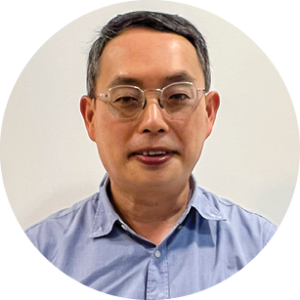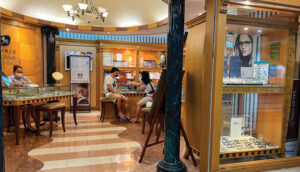It is crucial to change the public perception of optometrists and their role through education
It is a common misconception that optical stores and optometrists function solely to sell fashion and prescription eyewear. In reality, optometrists are healthcare professionals who provide primary vision care.
Optometrist and CEO of Jee Kwong Optical Group, Chai Ko Jee said it was crucial to change the public perception of optometrists and their role.

“It is important to educate the public on the role of optometry, which is more than just prescribing spectacles. We are professionally trained to conduct and provide eye management, screening, and diagnosis services.”
Chai is currently the second generation running his family optical business, Jee Kwong Optical Group, which was started by his father, an optician, in 1967. With over 50 years in business, Jee Kwong Optical Group has expanded with 11 branches in Kuching, Sibu and Miri in Sarawak.
“We strive to educate the public on optometry’s role and clear up the misconception that optometry is just for fashion and prescription glasses.”
He believes that when the public is more aware of the role of optometrists as primary vision care providers, they will be willing to listen and adhere to their expert care and advice and receive the best solution for their vision impairments.
Surviving during the pandemic
“It was a challenge for us to provide services to the customers during the pandemic as they avoided visiting eye care practices. As such, they didn’t undergo a comprehensive eye examination during the pandemic. Many were also unaware whether it was safe to wear contact lenses during the pandemic.
 For example, during the pandemic, people spent much time on zoom meetings, mainly working from home. Many were experiencing eyestrain and vision deterioration because of the hours spent in front of the computer screens.
For example, during the pandemic, people spent much time on zoom meetings, mainly working from home. Many were experiencing eyestrain and vision deterioration because of the hours spent in front of the computer screens.
“We had to prescribe occupational lenses for mid-range to near vision and suitable for computers and reading. These lenses help reduce the eyestrain when doing the near-sighted range works.
Chai revealed he had prescribed more occupational lenses in the past two years than before the pandemic. “We were unable to check patients in person during the pandemic.

Human connection and interaction are part of the business. The internet gives a general idea of the problem.
But with in-store face-to-face interaction he said, optometrists can understand better how the issue impacts one’s daily activities and identify the degree of the problem or inconvenience caused.
“Of course, you can search on the internet, but not everything is accurate or is safe information. In our role as eye care practitioners, we don’t just check the eyes for vision impairments but also their background and lifestyle to identify the best solutions.
“Our optometrist service after the pandemic didn’t change much. However, I observe people have become more open after the pandemic and are more willing to listen on how we can assist them with vision care and impairments.”
Supply chain disruptions
As for the Jee Kwong Optical Group stores’ operations during the pandemic, it was mostly under control, said Chai.
“The only problem was the external factors such as supply chain disruption, reduced product manufacturing, inventory levels in the warehouse and uncertainty of stock delivery times.
“During the pandemic, as optometry practices had to close following the lockdown and SOPs, demand was low. Naturally, manufacturers will cut down production.
“As the market reopens, these issues do not resolve overnight because now there is high demand, and the manufacturer cannot cope with the orders. The manufacturers now will need to ramp up their production.”
Bright prospects for the optometry profession
“Things are very bright because there is a need for optometry services. And as practitioners, we must invest more in equipment to help diagnose and pick up eye problems better.”
All Jee Kwong Optical Group stores are equipped with state-of-the-art equipment for a comprehensive eye health test.
He said that industry players such as Johnson & Johnson Vision Care have always been active and supportive of the optometry industry.
“With their ACUVUE product line, they regularly introduce new innovative lenses every one or two years to enhance the comfortable wearing experience for contact lens wearers. They also have various lens types catering to the different needs of patients.”
Chai also shared his interest in the prospect of artificial intelligence and telemedicine in the optometry industry. He believes they have the potential to serve the larger pool of people better and will be helpful in the future. – The Health







